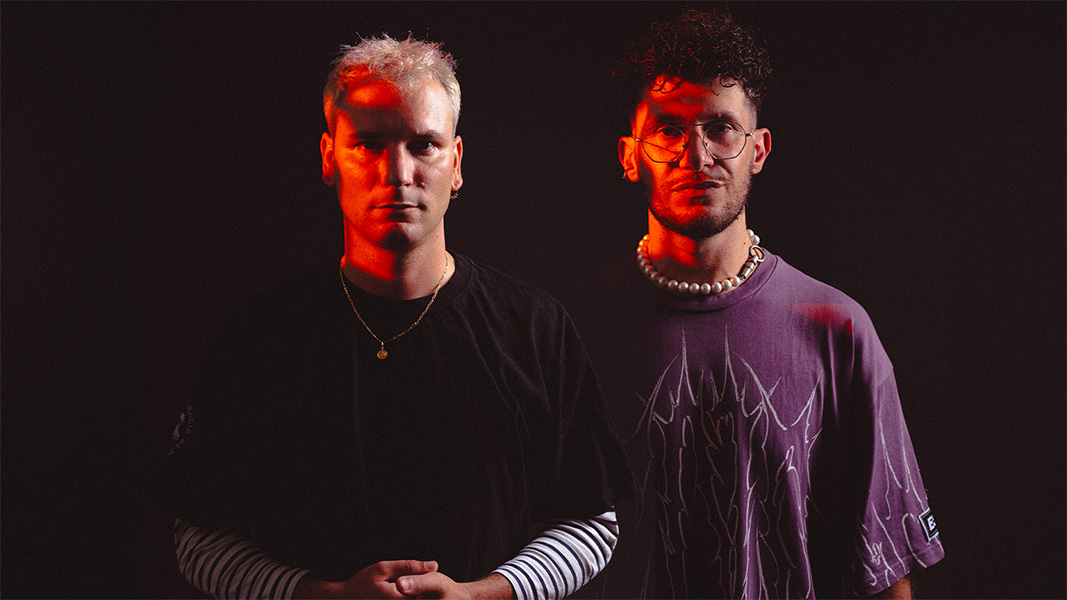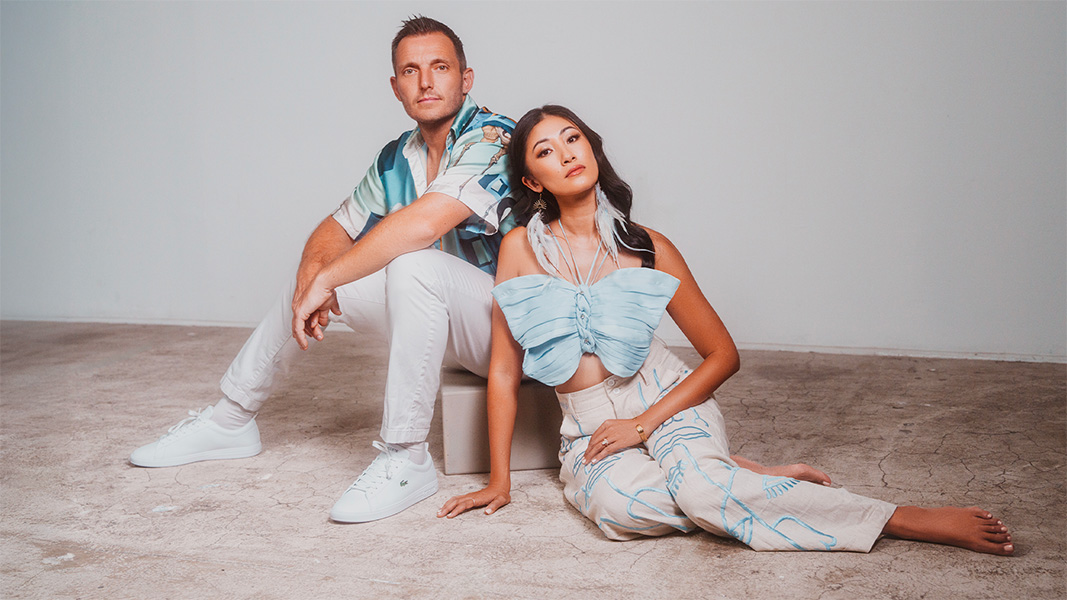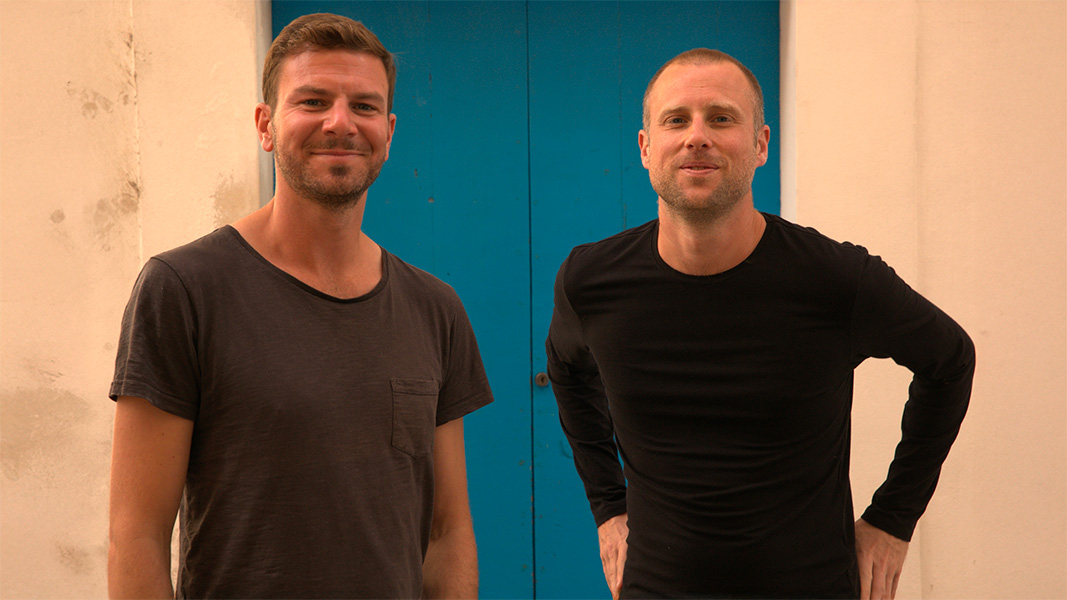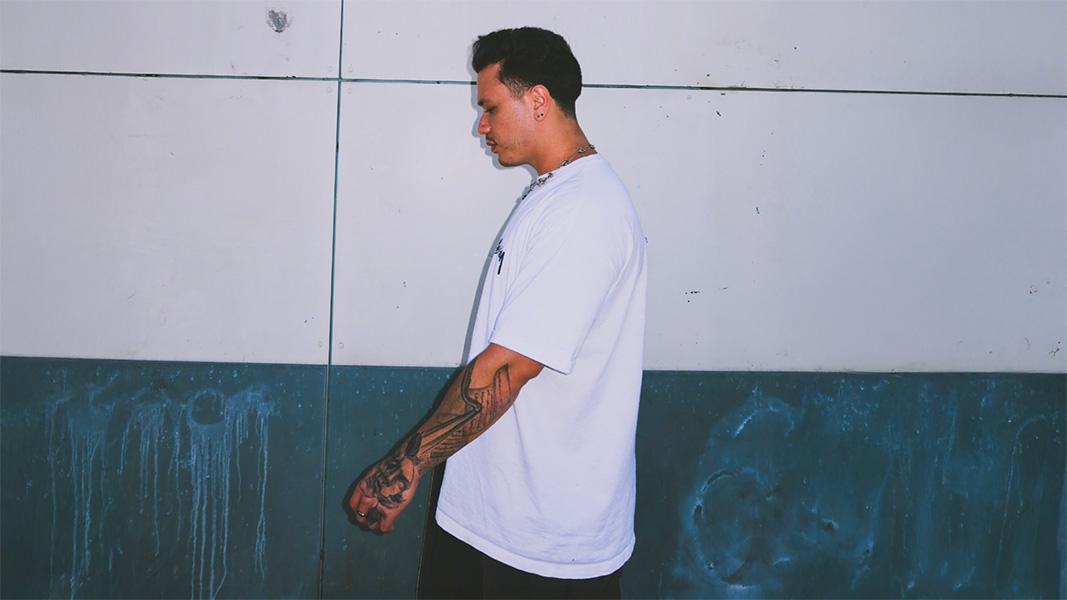Esteemed selectors and long-time friends Mark Slee and Atish Mehta come together to launch an exciting new project this month. The pair are collaborating around their very own label Manjumasi and if the debut release (featuring Slee himself, Patlac and Tim Green) is anything to go by, the imprint will fast be a major influence not only on the the west coast of the USA but also much further afield. Carrying a clear vision, an ensemble of impressive experiences and a whole tonne of exuberance, the boys are ready to set the future in motion. We caught up with them this week as they shared the story behind their next step and an exclusive hour-long recording showcasing the label’s tastes.
WWD: Set the scene for us guys, can you remember the very first moment Mark Slee and Atish Mehta crossed paths?
M: Oh man, going way back. We must have been about 15 years old, in high school outside of Chicago. We probably met in this unique class our school had, I think the name of the course was Critical and Creative Thinking, or something along those lines. We ended up working together on a completely absurd video project, which amongst other things involved us filling the ice dispensers of our home refrigerators with Cheerios and filming them pouring out. I’m not sure what we learned, but that probably gives a little sense of our goofy side, which we still indulge in.
A: I think that class was during summer school and we discovered that we live just down the street from one another. We would walk home from school to Mark’s house to fill the ice dispenser with Cheerios, and I remember pissing off Mark’s dad (who worked from home) since there was a lot of loud laughing, hooting, and even some hollering involved. Parents just don’t understand, man.
WWD: Aside from collaborating on your new label Manjumasi, How would your lives be different if you hadn’t met?
M: So many ways, it’s hard to even specifically say. Even back in high school we were sharing a ton of music with each other. Not just dance music, lots of rock and metal stuff. Bands like Primus, Tool, etc. After high school, we went to different universities, but both ended up in San Francisco in the mid-2000s, which was when we started throwing some parties together with our good friend Roddy Lindsay. Atish was actually doing projection visuals when we first started, and began DJing as the parties grew bigger. In hindsight, that also pushed me to take my own DJing more seriously, watching the level of focus and success that Atish was having with it, plus his willingness to put himself out there. I think if we hadn’t met, I’m not sure either of us would have started down this path very seriously at all.
Plus, music is just one dimension of our friendship. We spend tons of time discussing all sorts of other things, life philosophies, traveling, planning Burning Man camps, etc. When I visit our hometown, sometimes I’ll just go have dinner with Atish’s parents, even if he’s not there. I probably wouldn’t have dinner with his parents if we’d never met!
A: I’d be in a completely different place right now. We were both software engineers in our respective cities (LA and SF) after graduating college, and through a contact Slee introduced me to, I made my way up to work for a startup company in San Francisco, where Slee was already living. Once I moved to SF, I just went to all the parties Slee went to, which was my first exposure to the idea of “underground dance music” and the culture around it. From there, I got into DJing as a hobby, with my first gigs being the parties we threw together. Fast forward a few years and now I’m doing this DJ thing full-time. So if it weren’t for knowing Slee, I’d likely be living in another city, hanging out with different people, listening to different music, working in a different industry.
WWD: Can you each give us one fact about the other that we may not know?
M: Back in college, Atish once grew out his hair into a huge afro, which he bleached orange, and changed his chat name to Afrosaurus. His mom did not like it.
A: I actually didn’t intentionally bleach the afro orange. I originally bleached my afro into a rainbow, then all the colors faded into an awful orange over the next week since I used cheap dye.
As for Slee, you should hear this kid spit rhymes. Our high school music collaborations started with making gangsta rap. Slee’s alias, Darnell Forté (RIP), had a heavy Snoop influence on his intonation and delivery, and could crush all of Schaumburg Ikea in a freestyle battle too.
WWD: Talk us through the concept behind Manjumasi. What makes the label’s vision stand out from all that has come before?
A+M: I think the honest answer to this question is that we’re not trying to have a super fancy marketing pitch for this label or a clever spin – we’re just trying to make a label that reflects what we are about and puts out great music. Having a high quality bar is step one, but we also want the label to feel approachable, human, and a little quirky. We want to showcase what we have a taste for – anything that we’d both play in a club or use in a studio mix is fair game. And of course we hope we can achieve a level of excellence and respect amongst the community of people that care about dance music as much as we do. If we do our job right, when people see a new Manjumasi release out, they will know to expect some interesting music and not think twice about checking it out.
M: The backstory on the label’s name is funny. In Hindi, Manju Masi translates to “Aunt Manju” – which is actually the name of Atish’s aunt. We visited India together a few years ago for a friend’s wedding, and Manju Masi helped organize our trip by planning an amazing itinerary for us. I guess I ended up saying her name “Manju Masi” a lot, because it had such a fun ring to it. When Atish and I started playing back-to-back sets a little while after that, we started using the name on a whim, and it just stuck. So we’ve melted it down to a single word, and that’s Manjumasi. Part of why we like it is the personality that it expresses, family and friendship, playfulness. We also have our good friend (and great DJ) Naveen G helping us out on A&R – he’s been part of the Listed Bookings family for a long time – before either of us, in fact.
WWD: How long have you been working behind the scenes for the launch?
M: Since committing to the idea, it’s probably been about 6 months of concrete work getting all the design and branding assets in order, finding remixers for the first EP, building out a pipeline to prepare for our next releases, making sure people aware of what we’re doing, etc. But in a larger sense I’d say this label has been baking for years, since we’ve been throwing the House-Heads parties in San Francisco. The idea of a label would come up in conversation every so often, and we always thought it’d be a fun project to take on. After coming up so many times, we finally decided to pull the trigger and go for it.
WWD: What have you found the most challenging in establishing your own imprint?
M: One of the toughest challenges is simply the sheer volume of music and labels out there at the moment, figuring out how not to get lost amongst the noise. Same goes for bootstrapping a brand. Generally speaking, artists would obviously prefer to work with bigger, established brands with existing audiences to be sure their music will get heard. So we’ve had to think about how to tap into the networks of other artists that we know and trust, who understand that we’re putting real effort behind this.
A: Another exciting challenge for me is learning how to listen to music from a new perspective. Prior to running a label, I would answer a simple binary question when hearing a track: do I like this this song, yes or no? The decision-making process was quick and easy. But now, with our new roles as label curators, there are so many new questions we have to answer when listening to a track:
Will this track be quickly forgotten or does it have staying power?
I (Atish) like this, but would Slee also like this?
Is this an artist whose career we would like to help develop?
Could we book this artist at a label party (can he/she DJ)?
If a track’s not quite right but close, could we give feedback on edits or modifications to get it there?
That last question is the most interesting question because for my entire life up to this point, I only listened to other people’s music as a finished product. Now the purpose of “listening to music” is evolving, since I can help guide which direction someone’s music should go, rather than just evaluating as is. I’m slowly learning to develop my ears in new ways.
WWD: Vinyl or/and digital? What’s the format plan and what influenced your decision on the subject?
A+M: We’re starting with just digital. Though we do appreciate the vinyl form-factor, one of the realities is that pressing records at the moment can have long and tricky lead times. We want to focus on building out our release pipeline and getting great music out there. Digital is straightforward and accessible to everyone. If we could snap our fingers and press records overnight, it’d be fun to do some limited pressings. But top priority for us at the moment is building out… so maybe vinyl will be something for down the road.
With that said, we are still choosing to invest in quality sleeve artwork. We’re working with a really solid artist, Nathan Kanner (https://www.instagram.com/nkanny/). He’s doing some really beautiful hand drawings. Collection-worthy stuff, which we think is an important part of the package.
WWD: Was there a particular reason why you felt May 2016 was the right moment?
M: This all came about very fluidly. The process started with me shopping these tracks around to labels towards the end of last year, and not finding a place I was super excited about releasing them. I’d of course already shared them with Atish, he had also been playing them out. We were discussing and basically just said, “hey, we’ve been talking about doing a label for a while now, why don’t we just start with these tracks?” And that was pretty much that. The idea had been percolating for so long, it didn’t take much at all to push us over the edge.
A: I’m obsessed with calendars and logistics. Once my body is too brittle to continue touring as a DJ, I might move on to become a booking agent so I can manage other people’s calendars. We just looked at Slee’s tracks and did some date math to figure out the soonest we could launch the label taking into account remixes, mastering, promo cycle, artwork, press, etc, and ended up with May. I wish I had a more romantic answer like May 19th is the 7th harvest moon betwixt the dancing of souls, but unfortunately it’s simply just the earliest practical date we agreed on.
WWD: Can you give us an insight into each of your day to day roles at the label, how do you split the tasks?
M: We’re pretty collaborative on the majority of the tasks actually. One of most fun parts of this is all the discussion we get to have, making sure we are in alignment on decisions from the logo to the timeline to which artists we are excited about, etc. I think it helps that we’ve been super good friends for such a long time, so we know each other extremely well and we understand how to work together.
The biggest thing by far is A&R. We are talking almost on a daily basis about tracks or artists that we’re excited about, contemplating who might be a fit for the label, who might be a good remixer for a track, which artists might pair well together. We’d already been doing a lot of that as DJs, but having the structure of a label to fit things into makes it an even more interesting process.
A: And I’m the annoying guy who nags artists about deadlines.
WWD: You’ve shown with performances like Out of Bounds at Concept in San Francisco that you’re looking to challenge yourselves artistically, will Manjumasi be a medium to push the boundaries?
M: I think to start, we’re most focused on establishing the label, building trust with an audience. We don’t want to come out of the gates overly experimental and form a perception that this is a wacky left-field label. At the end of the day, we are both DJs – we want to put out great grooves and are going to work in real club situations.
If we’re able to nail it on this front, then over time we will be able to use that trust to broaden the horizons. This word “quirky” comes up all the time when we discuss the label. We like music that’s got something a little weird going on it, so hopefully we can grow that. Better get the weirdness in now, before too long we’ll just be creepy old men.
WWD: In your eyes,what does it take from a new label to seize the attention of the music lovers in the modern space?
A: This is the first time we’re starting a label, so to be honest, we’re not the most qualified people to answer that question. We’re just flying by the seat of our panties. I think there are actually two related interesting higher-level philosophical questions that we often discuss: how much attention do we actually want? And from whom do we want to get that attention?
It seems that right now we’re comfortable aiming to position ourselves in the boutique category, where getting some attention from just the right people makes sense for us.
WWD: Five years down the line how do you see Manjumasi evolving from where it’s at now?
M: Time will tell…I think we’ve each learned as we’ve grown that it’s hard to predict exactly what you’re going to want in the future – the whole fun of it is that everything changes, including yourself. Five years ago we were just a couple of twenty-something clowns throwing our little SF parties. So I think we’re trying to set Manjumasi up to be able to accommodate change, not locking the label to a particular genre or trend. It’s explicitly meant to be about our evolving tastes.
A: I’m hoping that we end up where we started in high school: slangin’ gangsta rap, Slee laying down smoov rhymes, with liberal use of cuss words.
WWD: Before we let you go! What can we expect from the label for the rest of 2016?
A+M: The second EP from Brian Cid will be due out late summer and we’re working closely with a few lesser-known artists who we hope to bring some attention to by the end of the year. We have some events in the works. June 12th we will be doing an extended set in Los Angeles with Disco Dive, and August 21st we’re spinning up our first major home-town event here in SF, which will be another Sunday daytime affair before we head off to Burning Man.
Other than that, you can expect us to make more nice announcements!
Follow: Atish // Mark Slee // Manjumasi






